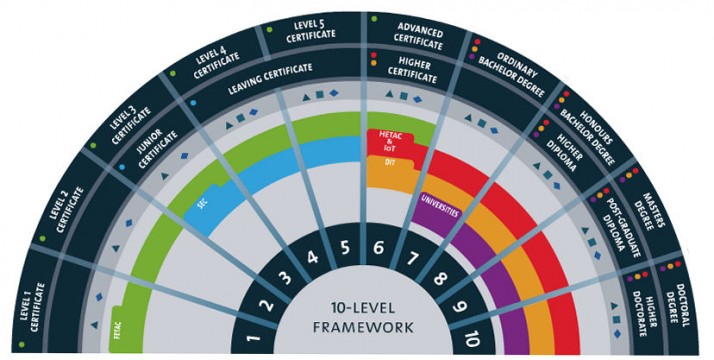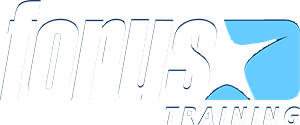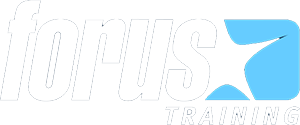Children's Rights, Legislation and Regulation - Group Bookings Course
Standalone or Part of Major Award
This Module is deigned to equip the learner with the knowledge, skill and competence to apply essential legislation, regulations and best practice guidelines which currently and historically underpin the Early Learning and Care (ELC) sector. You will be enabled to devise, implement and evaluate policies and procedures that support the health and wellbeing of children in the provision and delivery of ELC with a focus on children's rights.
WANT TO KNOW MORE ABOUT THIS COURSE?
Check below for more details.
Single modules are the best way to build your path to becoming fully certified and
get recognised by NFQ education point scheme.
This module is suitable for you if you would like to begin a new and rewarding career in the childcare sector. This module is also suitable for those who may already work in the childcare sector and would like to improve their skills and knowledge
Access to the Programme
Mature Applicants with relevant life and work experience are welcomed. The Course Advisor is available to meet with prospective learners to discuss and advise on the course details, career and academic opportunities and assess your suitability for the course.
Entry Criteria
Minimum entry requirements for the program include the Leaving Certificate or equivalent qualifications at NFQ Level 4, including Leaving Certificate Applied.
As this NFQ Level 5 qualification is delivered through English it is necessary learners will have sufficient written English skills to complete this course. For non-native English speakers, a minimum English language proficiency level of B2 in writing, reading, listening, and speaking according to the Common European Framework of Reference for Languages is required. If there are doubts about a learner's English fluency, they will undergo an English language proficiency test. Results should be at the B2 level (40 - 49).
Learners are also interviewed to evaluate their listening and speaking skills. The trainer receives the test results for the learner.
Prospective learners should show interest in the Early Learning and Care sector, possess responsibility and autonomy, and demonstrate a willingness to learn under supervision. Prior knowledge or experience in the ELC sector is not necessary for accessing the program.
IT Skills and Equipment Required
Basic working knowledge of computers and access to a computer with internet access is required to do the course. A PC with Windows 8 or later or a Mac with OSX 10.5 or later.
- An internet connection with a speed of at least 10mbps.
- The latest version of Chrome, Firefox, Edge or Safari, set to accept cookies and pop-ups.
- Adobe Flash and Adobe Reader, to view content.
- Word processing software, such as MS Word or Google Docs.
- Some courses include video, therefore your computer must be capable of playing video and sound.
* eLearning and tutor support may vary by course, please check each course page for details.
Reasonable Accommodation
To reinforce inclusion for all our learners we offer customised learning support for individual applicants who require accommodations. Additional Requirements Forus Training provide a range of supports for learners to ensure that our programmes and services are accessible to all.
On application for a course with Forus Training please discuss any additional requirements with the Course Advisor at hello@forustraining.ie so that the appropriate supports for teaching, learning and assessment can be considered. It is important that you discuss your needs with centre staff as early as possible.
Throughout this programme, you will discover how to;
- Explain the historical development of the ELC sector in Ireland.
- Evaluate a range of factors influencing and impacting on children's health and wellbeing to include family structure, community, culture, education, health, social services and social status.
- Outline relevant legislation, policies, practices and procedures pertaining to ELC provision.
- Evaluate child protection guidelines in relation to the protection of children and staff.
- Explain the rights of the child in the context of an ELC setting
- Explore challenges for adults in respecting choices and decisions of children.
- Devise a range of policies and procedures relevant to ECCE settings, ensuring adherence to legislation and national practice guidelines.
- Evaluate the relevance of policies and procedures which safeguard children within ECCE settings.
- Utilise a comprehensive range of specialised skills in meeting the needs of parents, children, colleagues and other stakeholders in an ECCE setting in the context of relevant legislation and national practice guidelines.
- Explain the importance of self awareness and effective interpersonal skills in an ELC setting Communicate effectively with children, families and colleagues.
- Implement practices and activities to promote equality and value diversity in an ELC setting.
- Critically reflect on how personal, cultural identity, attitudes and values can potentially impact on bias, discrimination and prejudice within ECCE settings.
- Maintain a quality ELC environment that complies with relevant regulations and standards.
WHAT WILL YOU DO ON THIS COURSE?
The Children's Rights, Legislation and Regulation - Group Bookings course outline can be found below...
Induction - Before You Start
Looking Back & Moving Forward
Factors that Influence Children’s Health and Wellbeing
Legal Obligations
Policies and Procedures
Administration
Rights of a Child
Child Protection Guidelines
Devising Policies and Procedures
Safeguarding Policies and Procedures
Relevance of Policies and Procedures
Meeting the Needs of Stakeholders
Effective Interpersonal skills
Understanding Participation
Communication
Promoting Equality and Diversity
Bias, Discrimination and Prejudice
Maintaining Quality in ELC
FIND WHAT PEOPLE SAY ABOUT THIS COURSE.
All the reviews about Children's Rights, Legislation and Regulation - Group Bookings course
Assessment
The course 5C21524 Childrens Rights, Legislation, and Regulation is assessed in the following ways, with the following weighting;
Assignment 50%;
An assignment is an exercise carried out in response to a brief with specific guidelines as to what should be included. An assignment is usually of short duration and/or may be carried out over a specified period of time. Assignments may take the form of a practical activity e.g. a practical assignment or a research activity/evaluation following investigation of a particular topic e.g. a written assignment.
Case Study 30%;
A learner record is the learner’s self-reported and self-reflective record in which he/she describes specific learning experiences, activities, responses and skills acquired.
The record may take a number of forms: it can be a structured logbook, a diary, a selective record of events or experiences over a period of time, a learning journal, a lab notebook or a sketchbook.
A project is a response to a brief devised by the assessor. A project is usually carried out over an extended period of time. Projects may involve research, require investigation of a topic, issue or problem or may involve process such as a design task, a performance or practical activity or production of an artefact or event.
Grading
Pass 50% - 64%
Merit 65% - 70%
Distinction 80% - 100%
Trainer Support
At Forus Training, we have many different supports available for your learning.
Learner Pack
- When you enroll on this in class course, you will receive a printed learner pack.
- This learner pack contains clear assessment instructions and material to support you as you complete the course.
- The professional online material you will have access to is fully narrated and transcribed by our trainers for your benefit.
- Each presentation can be completed at a time that suits you and the presentations can be paused and re-watched if necessary. To ensure that the material is memorable, we have developed a short, fun quiz to accompany each online presentation.
- You will also attend live synchronous classes through Zoom and pre-recorded Zoom tutorials will be available to support the material covered.
- You will also have in class workshops with your trainer for modules with a 25 credit rating.
- The trainer provides support to learners, including issuing feedback on draft work you will submit. Expect to wait up to 72 hours for a response by email from your trainer. Many of our trainers have full time jobs as well as training with us this means they will have up-to-date sector specific information, but also means that you need to allow a little time for them to get back to you. Our trainers are current with practice in the sector in which they work.
- Trainers can, by appointment, make time available to you before or after class to answer your queries that cannot be covered in the session. They can also make an appointment with you to discuss your work on a telephone call.
Assessment Upload Facility
- We have a user-friendly assessment upload facility available to you..
Support with Preparing for Assessment
If it has been a while since you’ve studied, we have free, short presentations on Study Skills, Academic Writing and Harvard Referencing to assist you in your work.
Technical Support
- Technical support is available by phone to 044 9349400 or by email: hello@forustraining.ie (Monday to Friday : 9am to 5:30pm).
Compassionate Consideration
- Where a Learner, pursuing an award, through no fault of his/her own, is unable to complete their assessment, the exit pathway below is in place to facilitate this Learner with an alternative course. The Learner is given the opportunity to obtain the Award by completing the course at an alternative date/location should they have relocated to an area where we provide the same award.
- The following are examples of circumstances where a Learner is unable to complete their project/their course:
- Bereavement,
- Illness,
- Pregnancy,
- Relocation,
- Extenuating circumstances.
- Please see P9 S7 C6 Compassionate Consideration Policy.
Learner Welfare
- P9 S6 C6 Learner Welfare Policy and practices are fully integrated throughout teaching and learning experiences by both Trainers and staff to effectively meet the health and wellbeing needs of all Learners. The Forus Training welfare policy is focused on the welfare of all Learners and addresses any particular challenges individual Learners may be experiencing during their learning experience. The learning environment includes welfare support provided by staff for Learners which is fully integrated throughout the teaching and learning and organisation of teaching and learning to effectively meet the personal, social (wellbeing) and academic needs of Learners and staff. Please see the policy here P9 S6 C6 Learner Welfare Policy.
Supports for Learners with Disabilities and Specific Learning Difficulties
- Forus Training is fully committed to complying with relevant policies and legislation with respect to equality and disability. Registered and potential Learners with verified disabilities or specific learning difficulties may be given compassionate consideration and reasonable accommodation to enable them to successfully complete their programme. This is arranged by the Course Coordinator.
- A reasonable accommodation is any action that helps to alleviate a substantial disadvantage due to an impairment or medical condition. Such accommodations are put in place to help reduce these barriers in order to provide equality of access and opportunity for all. Reasonable accommodations are made for Learners on a case by case basis and must be supported with medical documentation. Both P9 S2 C6 Evidence of Disability Form and P9 S2 C6A Application Form for Reasonable Accommodation can be found at the following link: https://forustraining.ie/knowledge-base/how-do-i-access-reasonable-accomodations/
You will be awarded a certificate in module 5C21524 Childrens Rights, Legislation, and Regulations. QQI is the awarding body. Forus Training is a provider of education and training programmes and we issue certificates to learners who have reached the standard for a QQI award. The certificate you will receive on successful completion is a formal confirmation by QQI that you have demonstrated the knowledge, skill and competence required to achieve the named award. This Programme is validated by QQI and is coded 5C21524 Childrens Rights, Legislaton, and Regulaitons. This certificate which will be issued to you by us is an award listed on the NFQ (National Framework of Qualifications). This ensures the certificate is nationally and internationally recognised and has many potential uses; for example, for further/higher education or employment in Ireland or abroad.
Tutorial 7 x 1 Hour Sessions for each module with a credit rating of between 15 and 20.
Tutorials 6 x 1 hour Sessions, plus in class workshops 1 x 5 hour classes for each module with a credit rating of 25.
This course leads to a level 5 award on the National Framework of Qualifications. This programme is a pathway to working in the ELC sector as learners who complete this course will meet the minimum professional qualification required under legislation for entry into the sector. Learners may also progress to the QQI Level 6 6M21471 Advanced Certificate in Early Learning and Care.
Registration can take place through our website, this will involve you completing the relevant application form, providing us with your personal information so we can complete the registration on our side. Registration can also take place by telephone/email/Whatsapp or in person, this will involve you providing us details of the course you wish to study, providing us your payment details and agreeing to proceed with the purchase. By completing registration, you are agreeing to the terms and conditions set out herein.
Please read Terms & Conditions here.
DO YOU WANT TO GET A COURSE BROCHURE?
This Module is deigned to equip the learner with the knowledge, skill and competence to apply essential legislation, regulations and best practice guidelines which currently and historically underpin the Early Learning and Care (ELC) sector. You will be enabled to devise, implement and evaluate policies and procedures that support the health and wellbeing of children in the provision and delivery of ELC with a focus on children's rights.

What is QQI?
QQI is the state agency responsible for the external quality assurance of further and higher education and training in Ireland.
QQI are responsible for the external quality assurance of further and higher education and training in Ireland.
QQI validate programmes, make awards and are responsible for the promotion, maintenance, development and review of the National Framework of Qualifications (NFQ).
QQI also inform the public about the quality of education and training programmes and qualifications, and advise the Government on national policy regarding quality assurance and enhancement in education and training.








